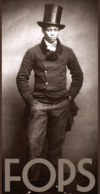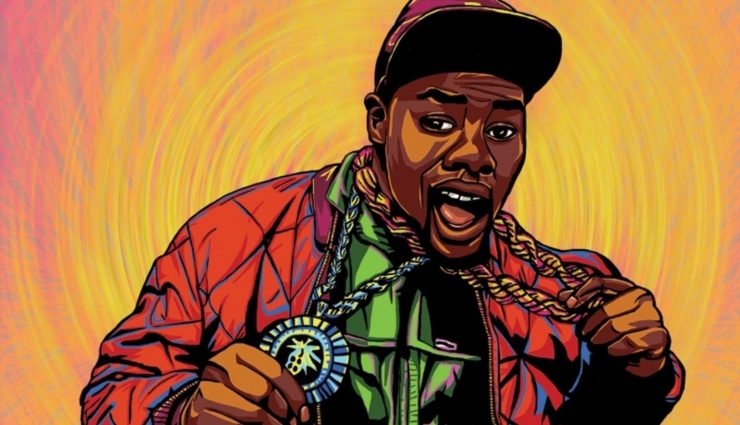Biz Markie, the ‘Clown Prince of Hip-Hop,’ Dead at 57
“Just a Friend” rapper struggled with health issues related to decade-long battle with Type 2 diabetes

Michael Ochs Archives/Getty Images
Biz Markie, the pioneering rapper, producer, and beatboxer whose jovial goofiness, boundless, off-kilter creativity and innovative music made him a singular presence in both hip-hop and pop culture at large, died Friday at the age of 57.
“It is with profound sadness that we announce, this evening, with his wife Tara by his side, hip hop pioneer Biz Markie peacefully passed away,” his rep Jenni Izumi said in a statement. “We are grateful for the many calls and prayers of support that we have received during this difficult time.
“Biz created a legacy of artistry that will forever be celebrated by his industry peers and his beloved fans whose lives he was able to touch through music, spanning over 35 years,” Izumi added. “He leaves behind a wife, many family members and close friends who will miss his vibrant personality, constant jokes and frequent banter. We respectfully request privacy for his family as they mourn their loved one.”
The rapper would also become a major voice in the debate over the breadth of intellectual property rights in a music world dependent on sound recycling.

After the 1991 release of his song, “Alone Again,” which sampled several bars from Gilbert O’Sullivan’s 1972 hit, “Alone Again (Naturally),” O’Sullivan sued, and won, chilling hip-hop’s use of samples that haven’t been accompanied by a big check.
In 1993, Markie hit back with an album titled, “All Samples Cleared.”
Among those saddened by his passing was rapper Q-Tip, who tweeted, “damn im gonna miss u.” Funk star Bootsy Collins tweeted that “to a lot of us he was more than Just a Friend,” and Cheo Hodari Coker, creator of Marvel’s Luke Cage and a hip-hip journalist, tweeted: “BIZ. Dammit.”
Longtime hip-hop writer Jeff Weiss, editor-in-chief of Los Angeles’ theLAnd magazine, called Markie “the epitome of hip-hop wild style.”
“A brilliant real-life cartoon full of absurdist humor and class clown wit,” Weiss said by email. “A beatbox master, vapor-passing, booger-picking pioneer of the drunken vocal technique. The physical manifestation of pure child-like joy with the musicality of a prodigy.”
In an interview with the Washington Post in 2019, Markie said his fans always return to “Just a Friend,” saying they repeat the chorus to him. “They always sing that to me. Always.”
“The weirdest thing about my fame is that when I’m thinking that it’s almost over it just sparks back up,” Markie said. “I made ‘Just a Friend’ in ’89. Some people’s records die — it sprouts up. Now it’s 30 years later and it’s sprouted up again in commercials. They’re not letting me die. The public, the fans, they like me around.”
Markie is survived by his wife, many family members and “close friends who will miss his vibrant personality, constant jokes and frequent banter,” Izumi said.
Over the course of five albums — most notably 1988’s Goin’ Off and 1989’s The Biz Never Sleeps — the producer-MC, whose real name was Marcel Hall, developed his own style unlike any other rapper at the time: a mix of half-sung (and intentionally off-key) choruses, riveting beatboxing, and silly humor that would earn him the nickname the “Clown Prince of Hip-Hop” and pave the way for gloriously bizarre rappers like Ol’ Dirty Bastard. Although deemed one of hip-hop’s biggest one-hit wonders — VH1 placed his 1989 classic “Just a Friend” at Number 81 on its 2000 list of the greatest one-hit wonders of all time — the rapper’s impact extended far beyond hip-hop’s greatest friend-zone lament.
The Harlem-born, Long Island–raised MC was a member of the legendary Juice Crew, the Queensbridge collective assembled by DJ Magic Mike and Marley Marl, and featuring fellow rappers like Big Daddy Kane, Masta Ace, Roxanne Shante, and Kool G Rap.
Markie’s debut single, the Marl-produced “Make the Music With Your Mouth, Biz” in 1986, showcased the “human beatbox” skills that would become a trademark throughout Markie’s career; his beatboxing skills were so otherworldly, he was cast in a cameo role as a beatboxing, mail-sorting alien in 2002’s Men in Black II.

